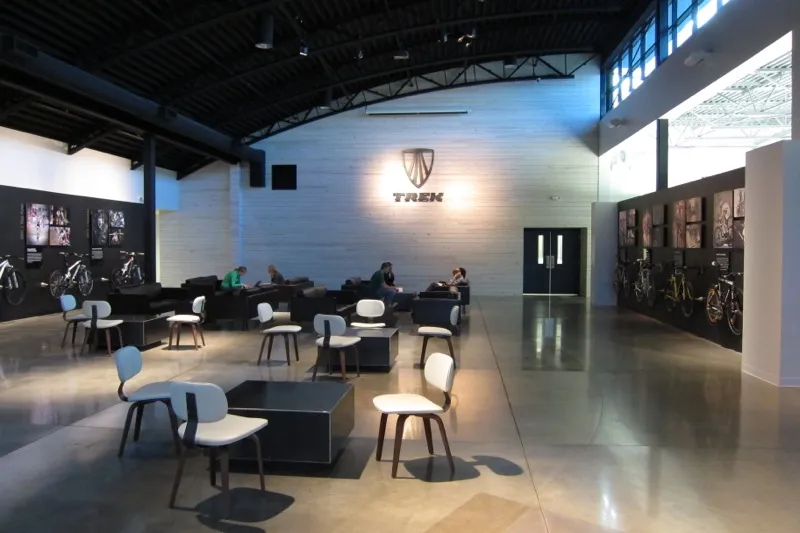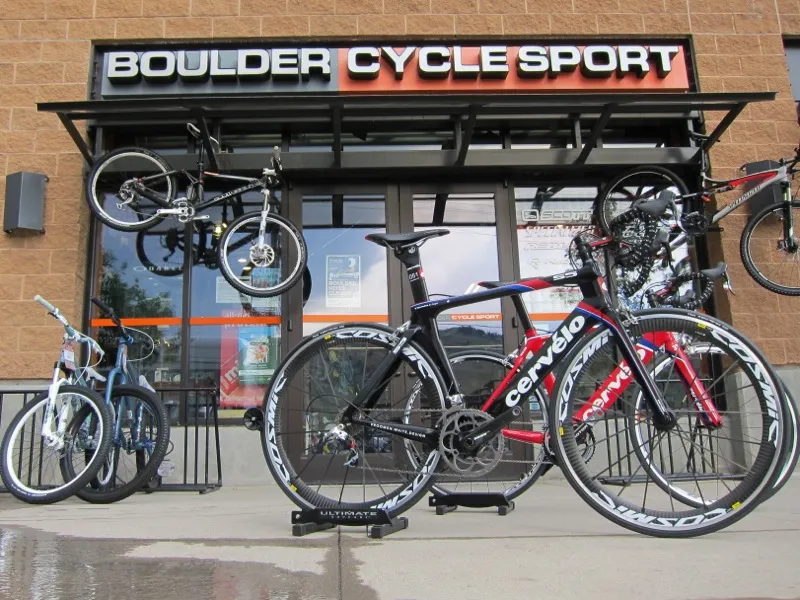While many businesses in the US are still trying to recover economically, those in the bicycle industry are seeing the wheels of progress moving again. Two economic studies released last month show strong growth on two wheels, and bicycle advocates suggest this could be part of a larger trend in the US.
It is no surprise that Boulder, Colorado has seen growth in the local economy from the bicycle industry, and according to a report released by Community Cycles, this is well beyond what might be considered a “cottage industry.”
According to the study, Boulder's bicycle-related businesses generated US$52 million in sales and employed 330 full-time personnel in 2010 — with the numbers for 2011 expected to be even higher. More surprising, is the fact that these figures do not include some bicycle related activities. “We did not include events, and as you know there are a number of bicycle related events in Boulder,” said Sue Prant, advocacy director at Community Cycles. She told BikeRadar that with the USA Pro Cycling Challenge heading to Boulder this year that the economic numbers will likely only increase.
Boulder is not the only city seeing the impact that cycling can have on a local economy. In fact, another study shows that the State of Iowa has seen more than a third of a billion dollars in economy activity coming from bicycles last year. Given that Iowa doesn’t have any major manufacturers, the number is quite significant — especially when compared to a 2010 study that found that cycling generated US$1.5 billion for the economy of neighboring Wisconsin, which is home to Trek Bikes.

Trek, located in Waterloo, WI, play a large role in Wisconsin's economy
Whilst parts of the country are seeing little improvement in the economy, bicycle related businesses are aiding efforts to get the economy in gear in the Hawkeye State to a tune of US$1 million a day. “This is most certainly helping Iowa,” says Samuel Lankford, a student at the University of Iowa, who was one of the authors of the Iowa Bicycle Coalition Study that found that cycling had generated US$365 million for the state’s economy. “We have 61 bicycle specific shops in the State of Iowa, a small number by comparison of places like New York State, [but] they sold over US$8 million in bikes last year, $1.9 million in clothing sales, $4.2 million in accessory sales and $3.6 million in repairs. The payroll is nearly $4 million a year for these shops and employment is about seven employees per business.”
Lankford tells BikeRadar that these numbers do not include large sporting good retail and big box store bike sales. “So the total impact of bicycling in Iowa generates US$354 million a year with an employment multiplier that indirectly supports 6,300 jobs statewide,” he said.
Bicycle advocates say these two studies are just a sampling that is part of that larger national trend. “These are important metrics that we’re all looking at,” Mark Wyatt of the Iowa Bicycle Coalition, which released the Iowa study, told BikeRadar. “Metrics like this are going to be even more important going forward.”
Wyatt is just one of several voices who say that the increase in the price of gasoline has resulted in more people commuting by bicycle, but that recreational bicycling is also increasing. And as any cyclist can attest, it starts with the bike. Lankford added, “There are more (people) riding for recreation. They spend money on bikes, bike equipment and clothing, bike repair and bike events. They also spend for recreation on lodging, transporting bikes, and related activities. Riders spend on average $1,200 on bike related expenditures.”
But there is also the issue of biking infrastructure, which will only increase as cycling increases. “We are seeing that even more people would be on bikes [if infrastructure supported it], about 65 percent of the respondents said that they would bike more if there was the bike infrastructure to support it,” said Lankford.
It is very much a “build it and they will come” proposal that the Bruno Maier, vice president of Bikes Belong says could inspire more bike infrastructure. “This information is helping communities justify investments in bicycling,” Maier told BikeRadar. “I expect the number of studies to increase, and I also expect the economic benefits to grow.”
He says this is a growing trend that cities and states are trying and measure overall economic impact of bicycling, including the measuring of bike sales, accessory sales, and repair in addition to event registration, travel, hotels and even tourism.
The issue of course is whether this can be sustained, but say the experts the business bicycling isn’t driven by the same factors as much of the general economy. Bike related businesses do well when things are bad, and do even better when the economy gets rolling. “Even in a bad economy bikes can do well,” said Prant. “People need a cheap way to get around. But when the economy picks up people buy a new bike. It makes the industry somewhat recession proof.”
And Prant says if the infrastructure comes it will give bikes benefits over other forms of transportation. “It is far cheaper to maintain bike lanes and bike paths,” she said. “The more the government invests the more people that have bikes. The infrastructure is therefore more cost effective than roads for cars or even mass transit.”
Bikes Belong’s Maier agrees with that statement and says that these factors also mean that cycling as an industry can sustain growth as well. “Bicycling is a cost effective form of recreation and transportation,” said Maier. “As cities improve bike facilities, so that they are safe and stress-free, more American’s will chose bicycling as an option for transportation and family fun. As energy prices and health costs soar, more American’s will turn towards bicycling as a way to save money and improve their health.
“Communities across the nation are realizing the benefits of bicycling, so I definitely believe this will continue and can be sustained,” he said.

